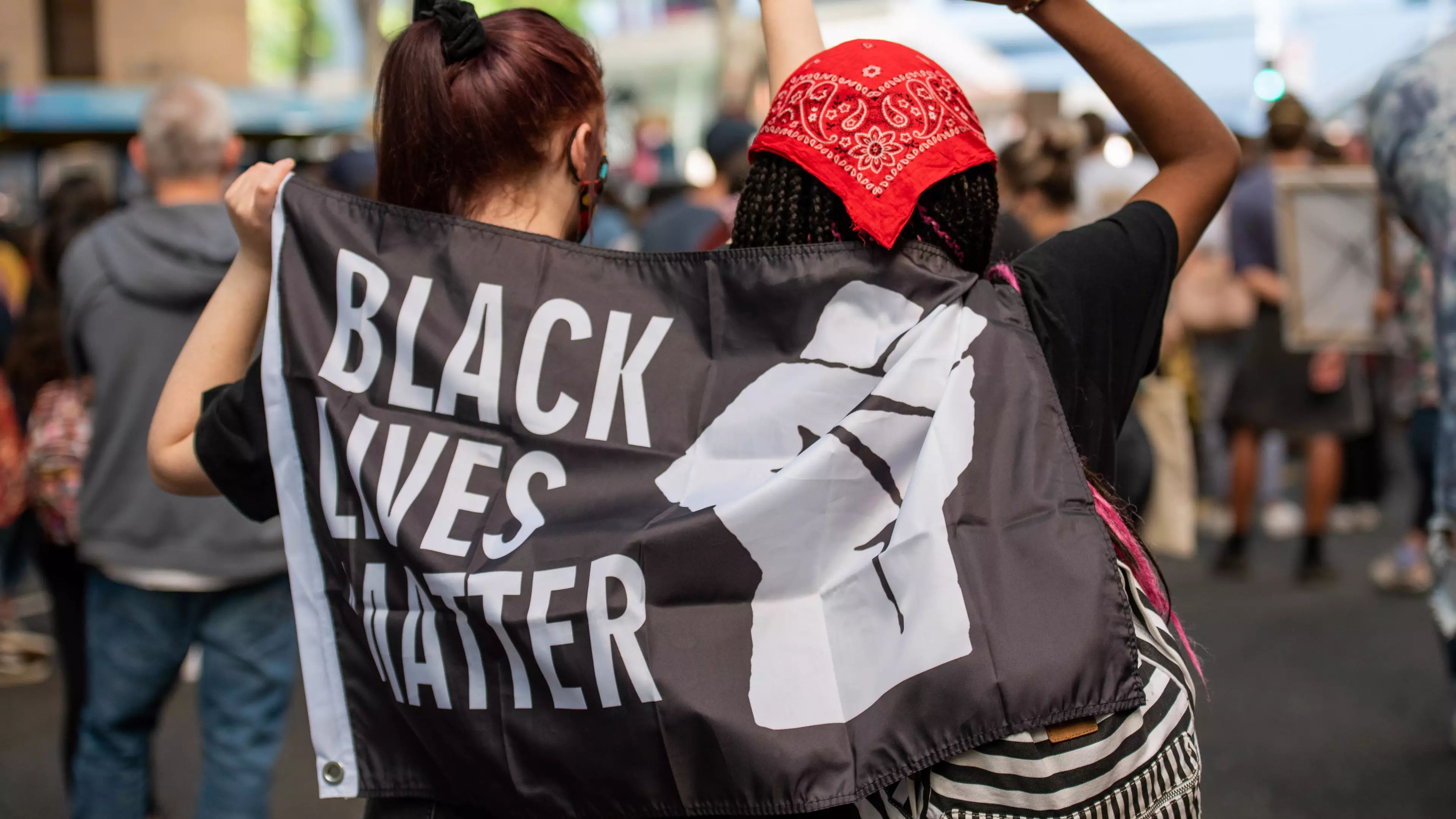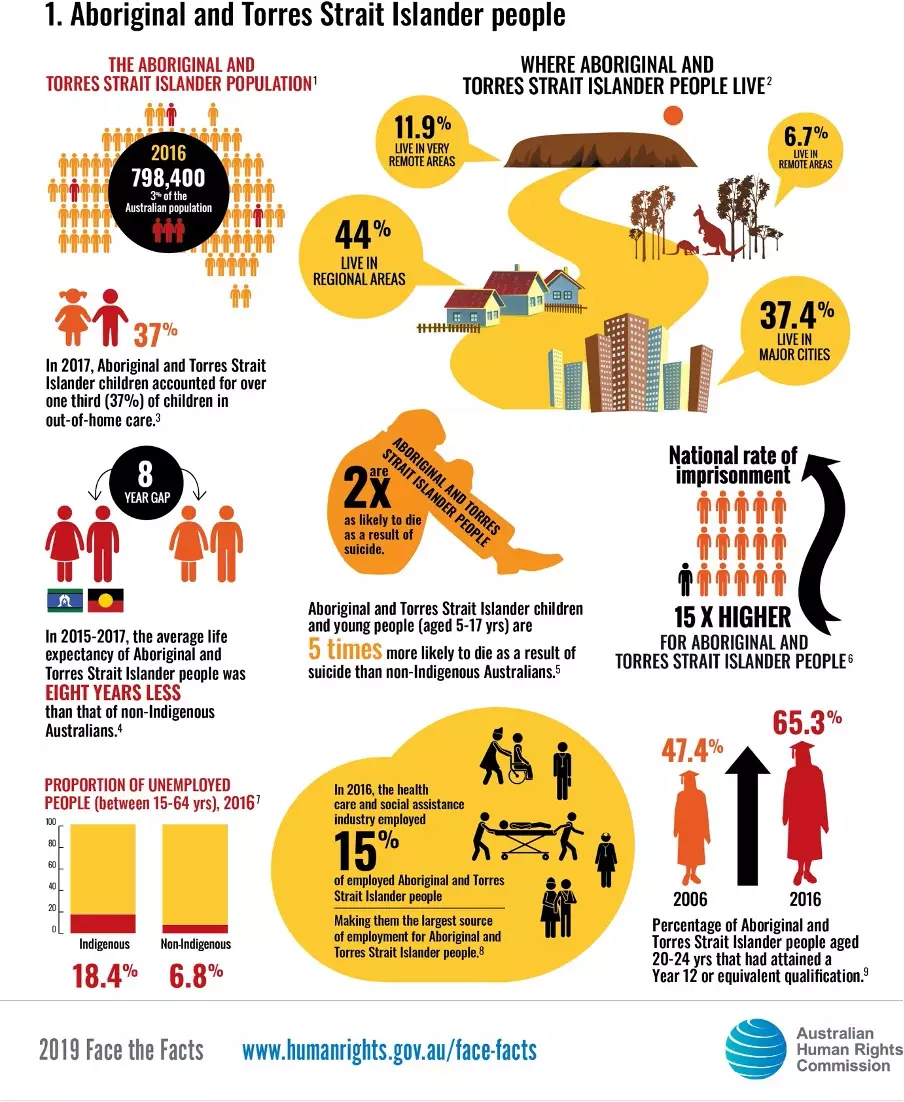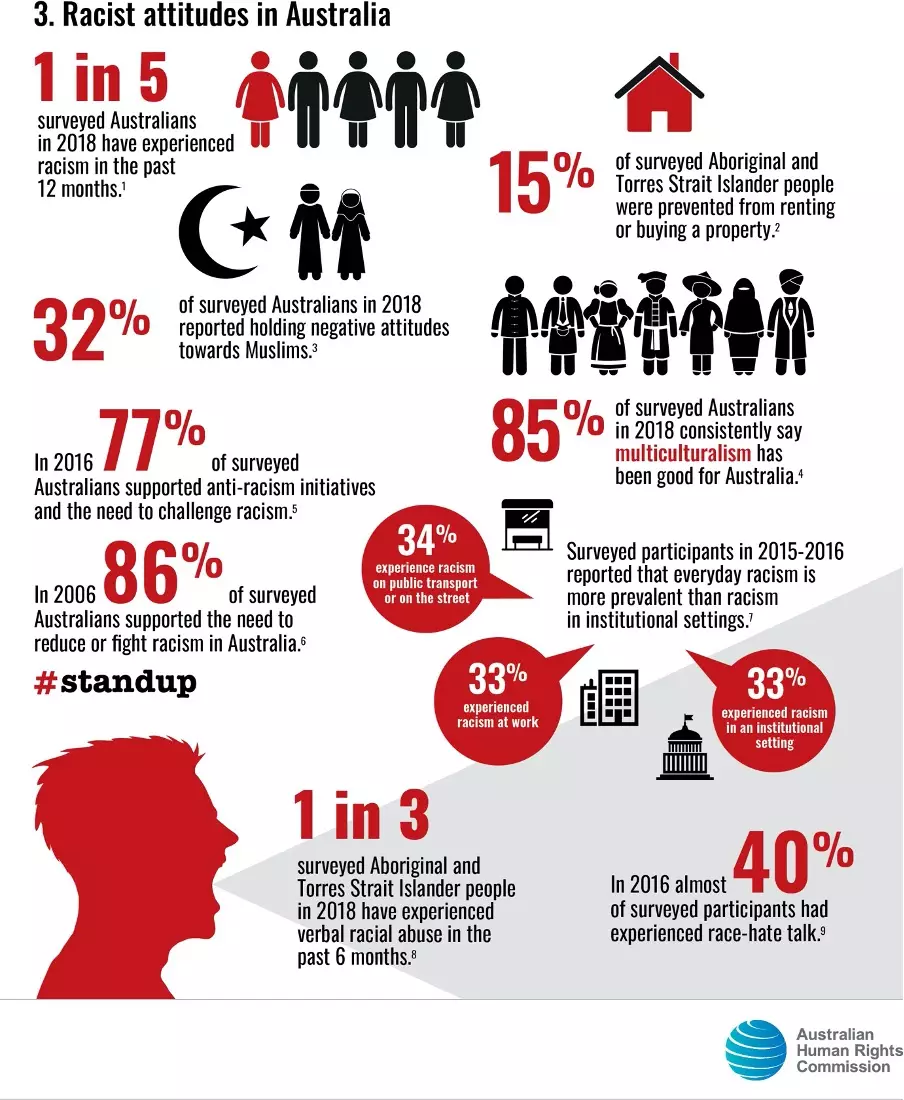
Statistics show that between 1991 and June 2020 there have been at least 441 Indigenous deaths in custody.
With systemic racism becoming more discussed in today's climate, it's important that people have constructive talks around the issue while being aware of the facts, especially within the workplace.
We know it can be difficult, so with the help of some experts we've put together ways how you can tackle a conversation about racism in the most constructive way possible in a manner that is proactive, not reactive.
Advert
For the comprehensive details outlined by the Australian Human Rights Commission, you can download the full guide at Racism. It Stops with Me campaign.
Who is most likely to experience racism in Australia?
According to humanrights.gov.org 'about one in five Australians report having experienced racial discrimination during the previous 12 months' with Aboriginal and Torres Strait Islander people 'and certain migrant communities (such as African Australian communities) much more likely to experience racism than other people.'

Advert
Racist attitudes can create a domino effect in individuals that can prove catastrophic. It's important to look at the statistics when it comes to mental health issues in minorities in Australia - especially as it's these attitudes that can lead to a lack of proper healthcare in individuals of diverse backgrounds.
According to psychiatrist, film-maker and entrepreneur Dr Kamran Ahmed, the National Survey of Mental Health and Wellbeing says that 'over a quarter of a million first-generation adult Australians from culturally and linguistically diverse backgrounds are estimated to experience some form of mental disorder in a 12-month period.'
Advert
He adds: "Despite all the mental health risks associated with migration, migrants in need of support often don't receive any due to a lack of awareness of mental illness and understanding of the health system, or the stigma associated with a diagnosis and choosing alternatives to mainstream health services."
How to have a conversation about racism at work
In another article discussing Twitter users' experiences of racism, Dr Kamran Ahmed spoke of the importance of talking about these issues.
"As with all abuse, stopping racism will take those on the receiving end refusing to tolerate it and for the abuser to accept it is happening and change behaviour," he said.
Advert
"Talking about racism, acknowledging it exists and speaking out when we witness it are the first steps towards that goal."

The Australian Human Rights Commission suggests that in order to challenge racism, organisations should conduct conversations about racism that allow for open and honest discussion about experiences and strategies, with the six principles of human rights education being:
• Relevant to participants
• Collaborative
• Participatory
• Probing
• Encourages thoughtful action
• Empowering.
Advert
They also encourage 'inclusive and respectful language to be demonstrated and consistently used by all participants when discussing race and racism.'
They add that a discussion should be 'open to all within your organisation who want to learn about and discuss racism.'
"Organisers and/or facilitators should try to involve a diverse range of people, including people who have different racial backgrounds, genders, ages, abilities and positions within your organisation," the Commission states.

Some discussion-starters suggested by the Human Rights Commission include having attendees talk about their ideas on the following:
- How does race shape our lives?
- What does racism look like?
- What does racism 'feel' like? Have you experienced racism, or witnessed someone else experience racism?
- What can people do to actively address racism?
- What can we do to address racism?
Having these discussion points will help set up a sensitive and mature approach to discussing racism, while at the same time will help an organisation be better prepared to handle racist incidents if or when they happen.
While we've only touched on some of the info on how to approach a discussion on racial issues, the Australian Human Rights Commission has a huge amount of great information on the topic.
Their comprehensive guide can be used in 'conventional workplaces, community groups, faith organisations, sporting clubs as well as other organisations.'
Featured Image Credit: PATopics: Black Lives Matter, Racism, George Floyd